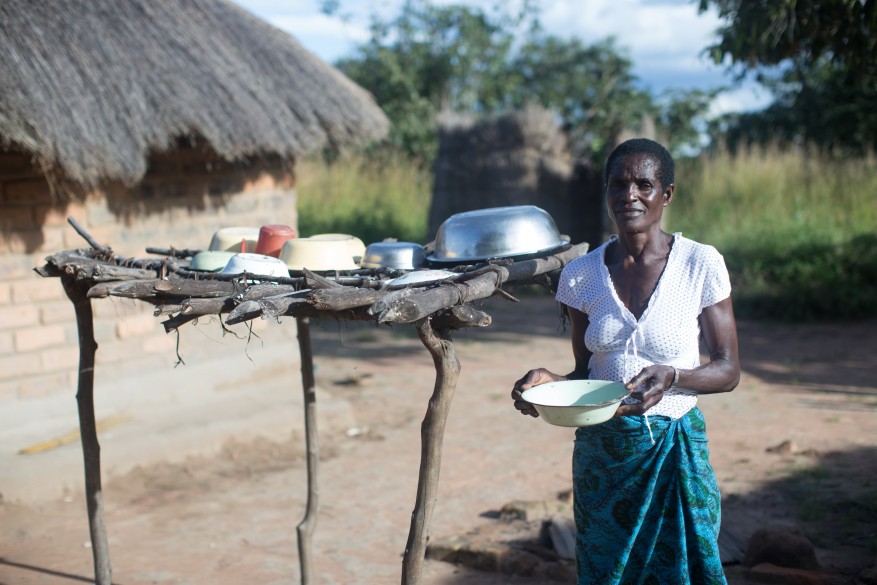Charity Kamwala’s warm smile speaks volumes about the transformation there has been in her life since she began working with Self Help Africa, two years ago.
Instead of a basic diet of low-protein cassava which was the staple for her family, the 56-year-old widow from Nsunda village says that her family now eat millet, maize, vegetables and other food that they grow on their small farm in a remote pocket of Northern Zambia.
“My children and I are healthier and are sick less of the time,” she says.
A mother and grandmother who cares for seven of her young dependents, Charity recently replaced her straw roof with new tin sheets, and extended her mud-brick built home with additional rooms.
“When I look at the house, I still can’t believe it’s mine. I feel like a different person owning it.”
Charity Kamwala is amongst 10,000 families receiving farm training and other support from Self Help Africa in Mbala District of Zambia’s Northern Province, the poorest region by far in a country where over 60% of the population live on the equivalent of less than a Euro a day.
As a member of a village-based savings and loans group established in her community, she has taken out a number of small loans to buy the ingredients to make scones that she sells in the locality to supplement her meagre farm income.
Life has been difficult for Charity since she was widowed in her early 40s, and she confides that she is still only able to farm less than half of the land that she inherited on the death of her husband.
She can’t yet afford to hire the help needed for the grueling labour of digging, planting, weeding and harvesting crops with the hand-tools available. But she’s optimistic that this will change.
“My life has changed a lot so far, and I am now living better than before,” she says, before predicting – with a smile – that it will get even better in the future.

